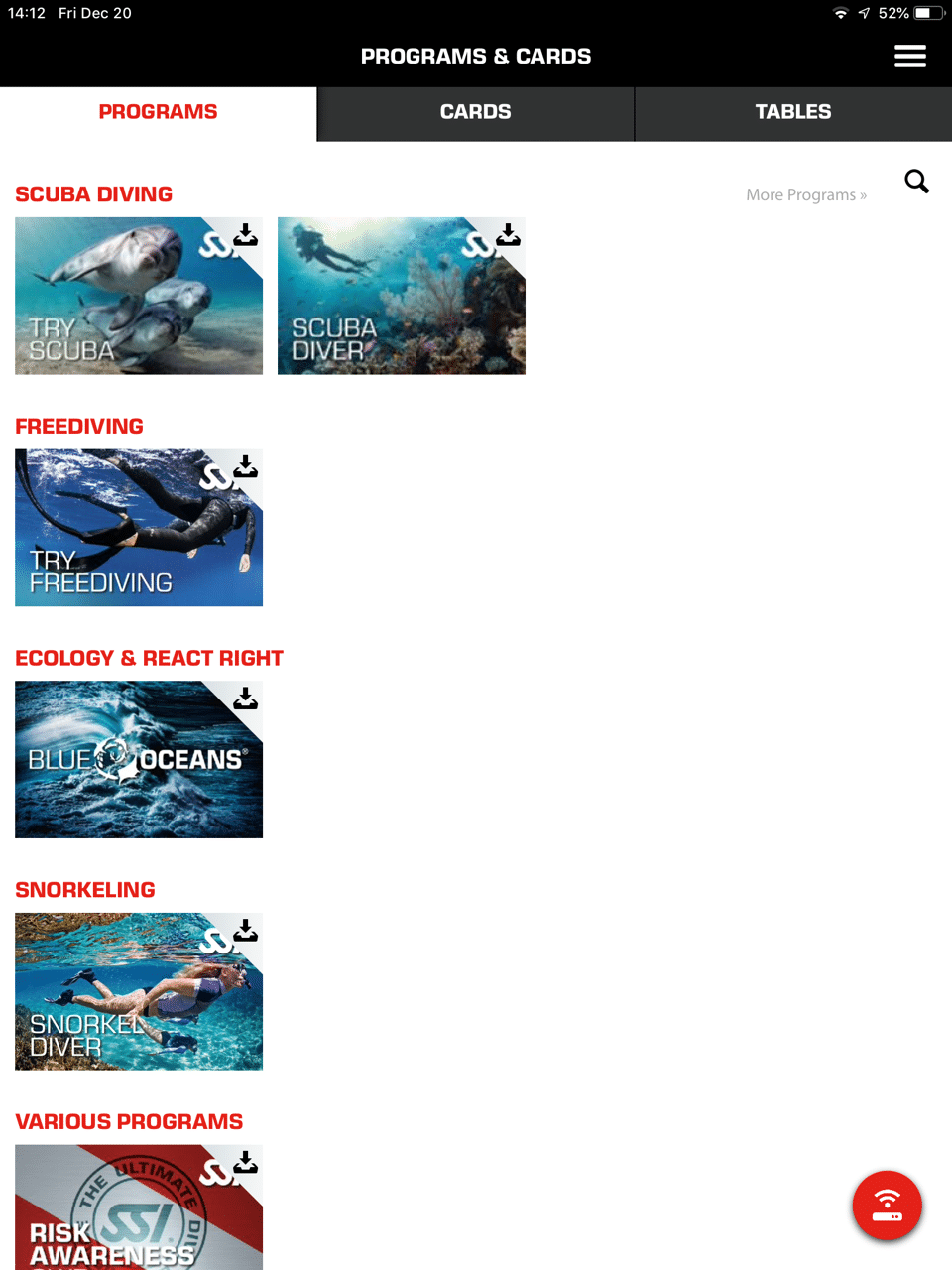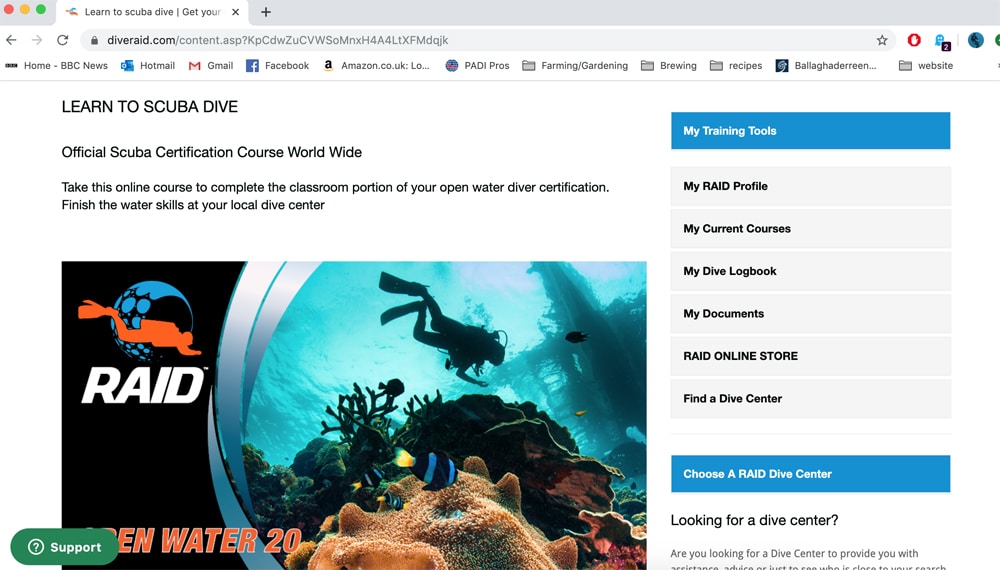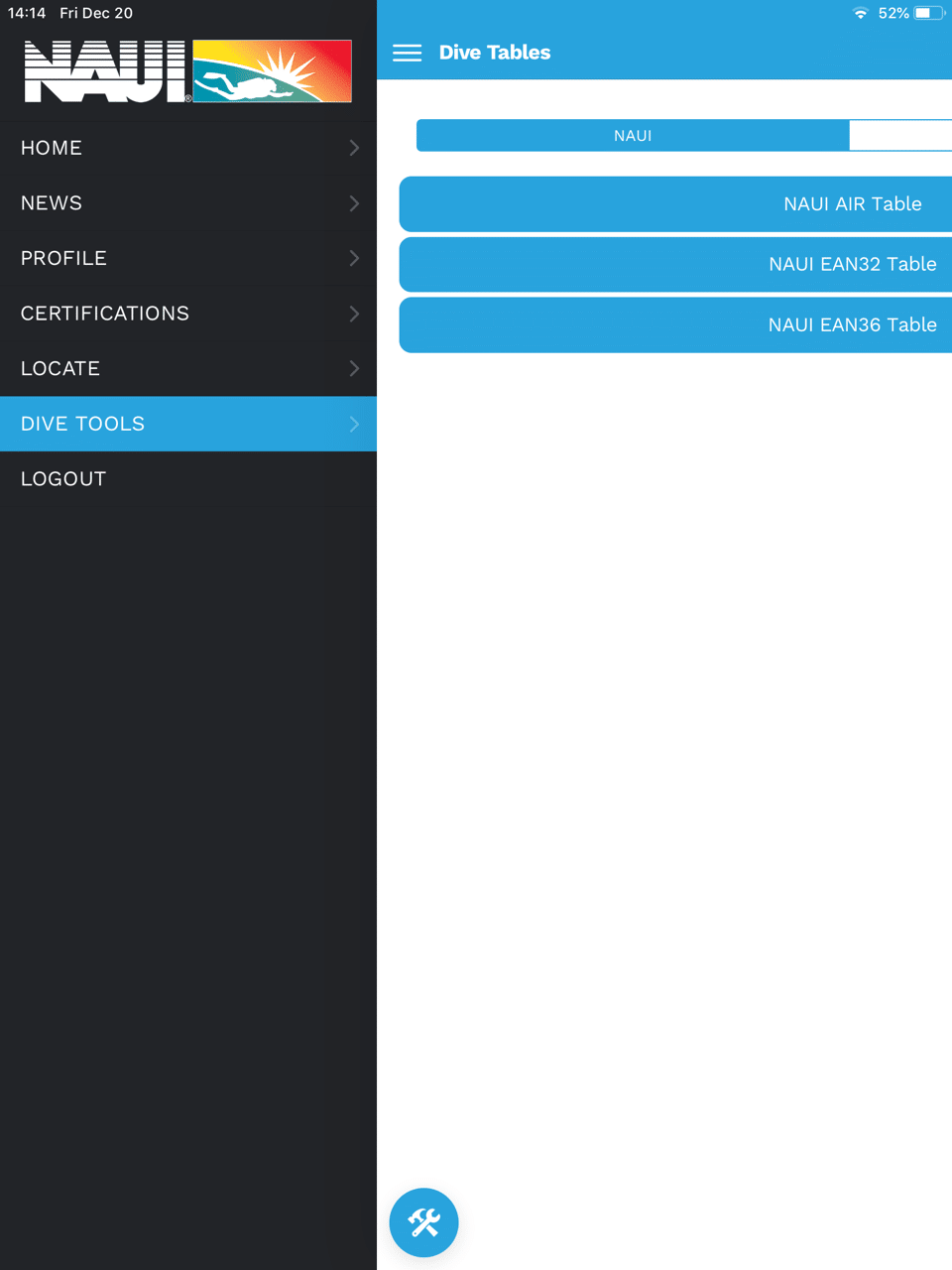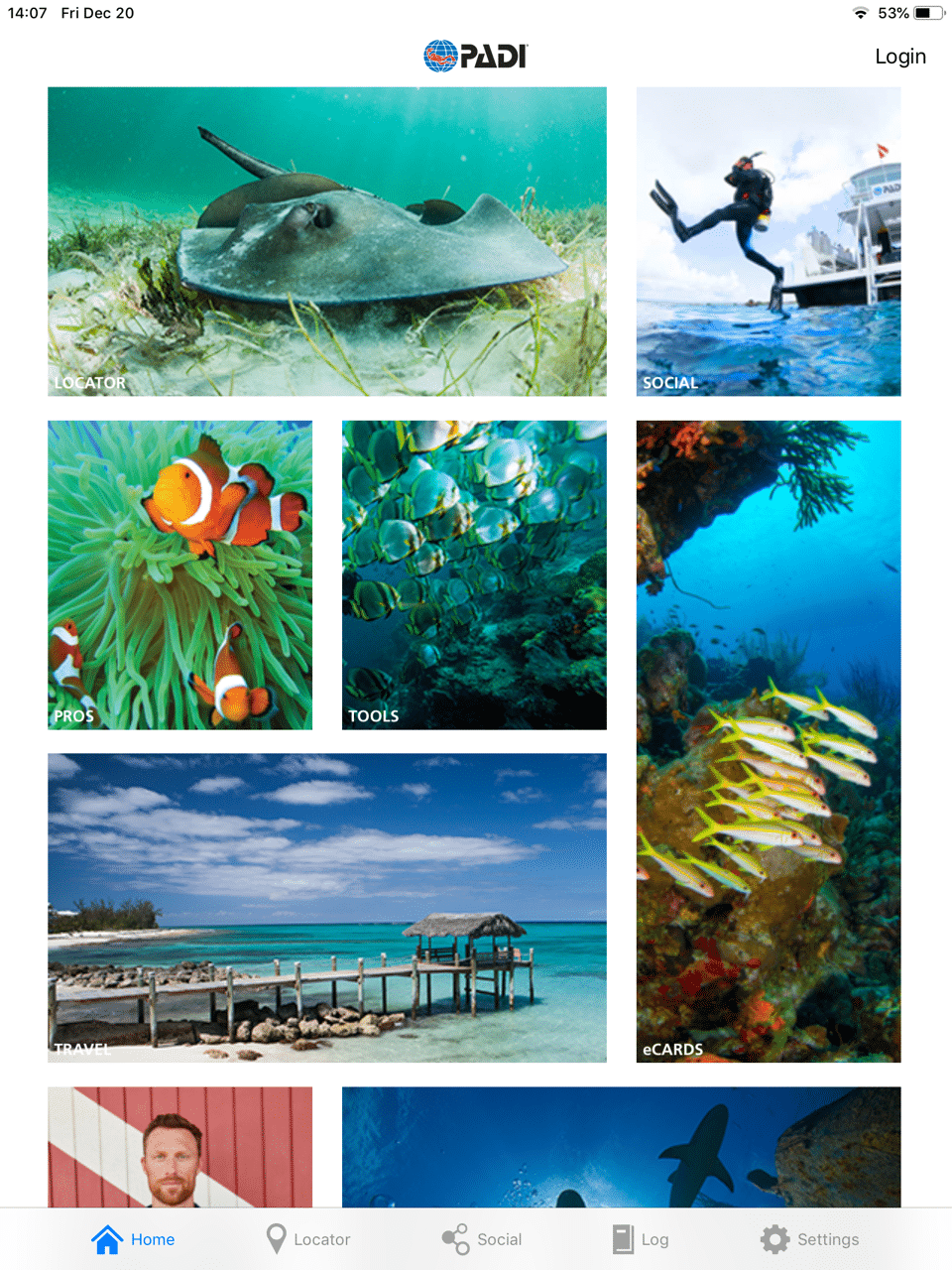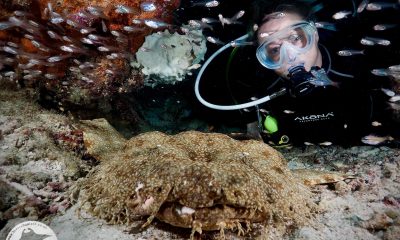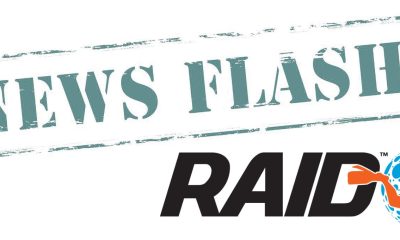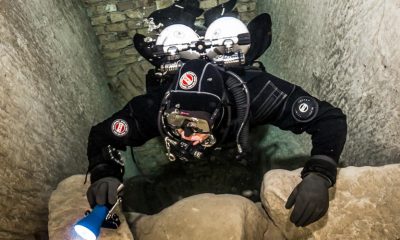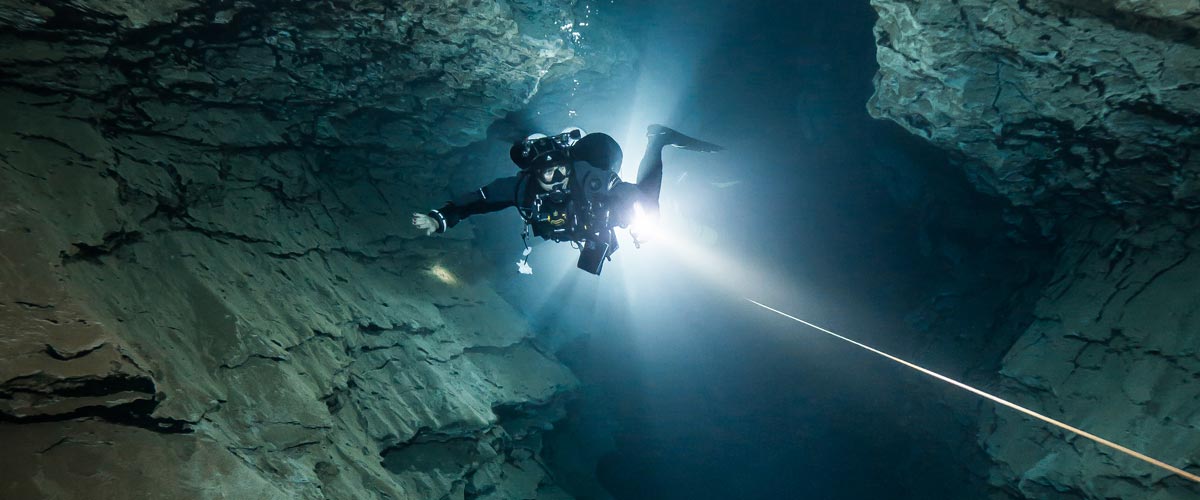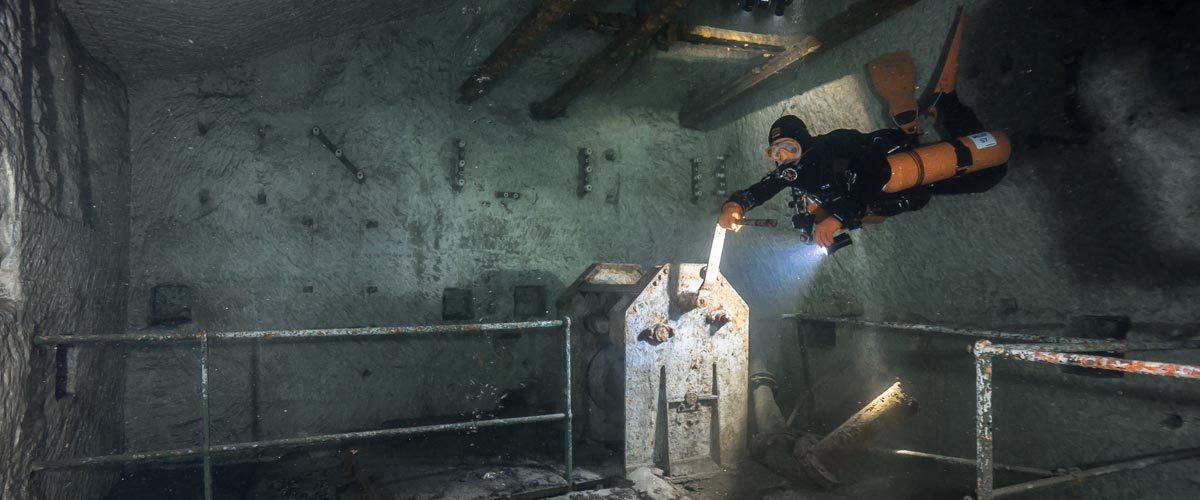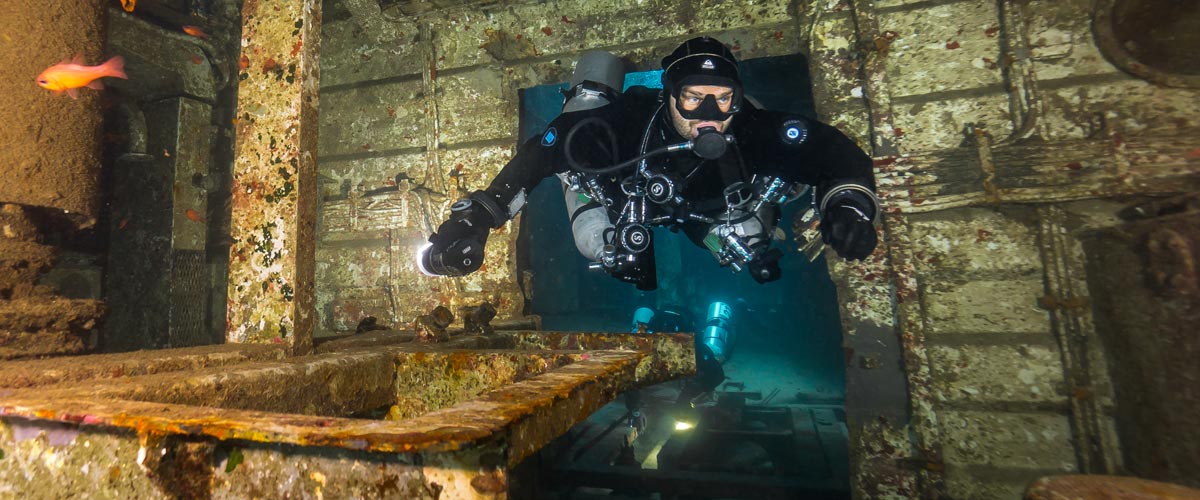Dive Training Blogs
Dive Training Agency Apps Review (Watch Videos)
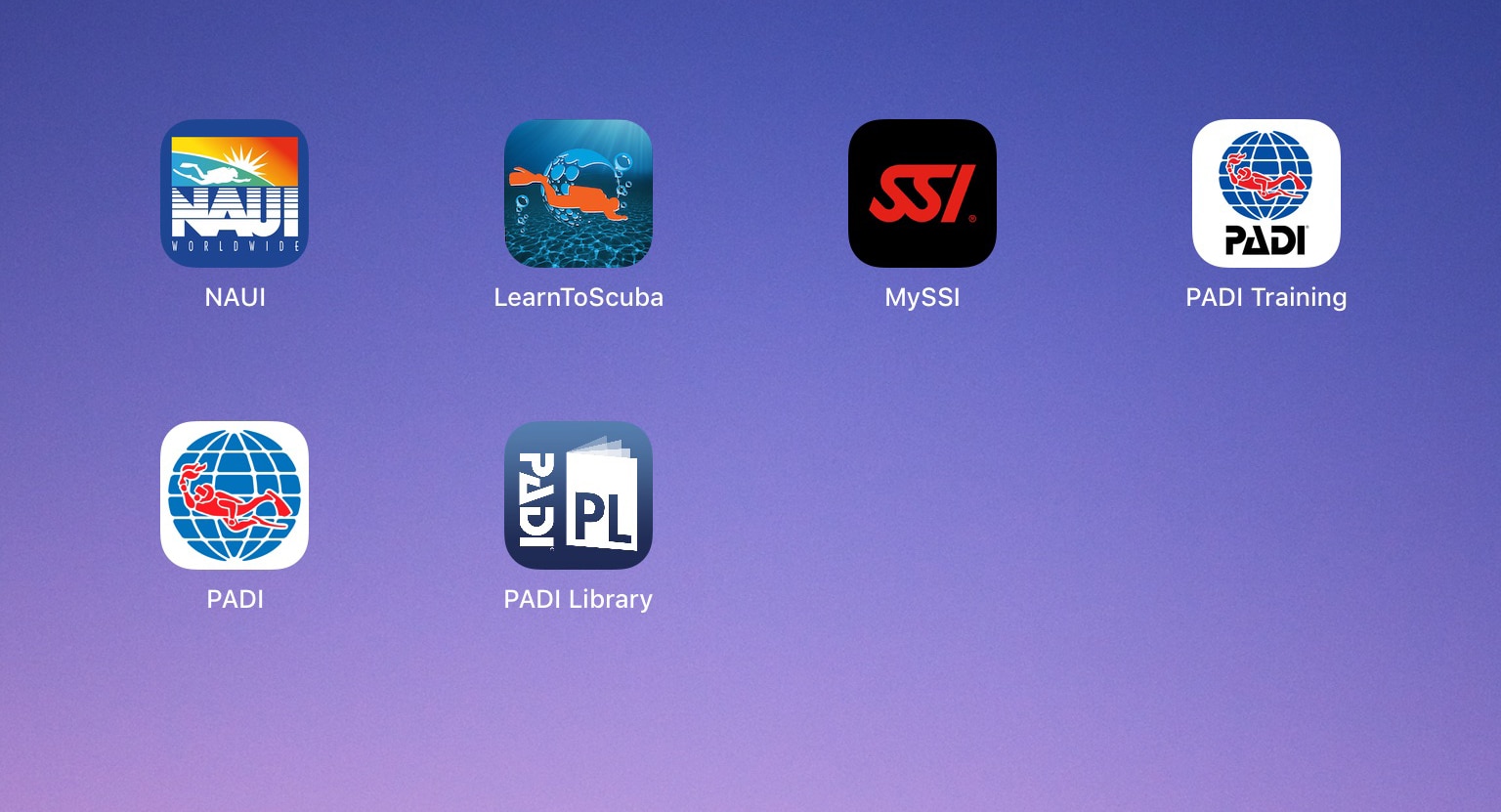
With mobile apps being the most convenient way for many people to keep up with their interests anywhere and anytime, it’s not surprising that divers and prospective divers are looking to access information from their training agencies via apps as well, even before the time of COVID-19! This has not gone unnoticed by the training agencies, many of whom have come out with apps and e-learning to meet the increasing demand. There are now easy to use apps for dive logs, shop recommendations and e-learning, perfect for divers traveling around the world to enjoy their sport.
Here at Bimble In The Blue we have tested out the various apps to see what’s hot and what’s not on behalf of Scubaverse. Our first task was to see what was available from the main training agencies: PADI, SSI, BSAC, SDI, RAID and NAUI.
SSI, SDI, and RAID all have apps with access to e-learning. The NAUI app has basic functions but no e-learning. PADI has multiple apps and BSAC and SDI don’t currently offer mobile apps.
SSI
The MySSI app has SSI Digital Learning materials, certification cards, a digital dive log, news and a dive centre locator. On opening the app the main page is attractive and easy to follow with all functions listed in a drop-down menu.
Some of the sections require a login to unlock all the content including academic training materials for Try Scuba, Try Freediving, snorkelling and Scuba Diver programmes and the Blue Oceans environmental awareness program, it will also give you access to digital certification card sections, allowing qualified divers a permanent record of their qualifications (from any agency). Registering is free of charge and requires a name, email address and DOB, your then choose a dive centre to be affiliated with, you can have multiple centres or change at a later date.
The tables tab has safety accident management and diving tables which we found to be a very sensible and useful feature. The digital dive log also includes a Buddies tab to connect with fellow SSI divers. The Events and More section features news stories from the SSI blog(with a nice mix of scuba-related subjects), Videos (a mix of how to, training, and general dive interest content), and Events (which strangely enough did not list any information for us). Finally, the app has a feedback option to comment on its design or technical issues as well as training course reviews. We were generally impressed with the layout and all-in-one nature of the MySSI app.
Things We Liked:
- Lots of useful features, well laid out and easy to navigate
- Dive Center Locator was intuitive and fast to use
- The app is a true one-stop shop, with e-Learning and other features all in the same place
- Feedback option
- Good quality training videos and content
- Website registration is easy and straightforward
Things We Didn’t Like:
- The Events and More section was not as organised, with some content in random order, which stood out when compared with the rest of the app features.
RAID
The LearnToScuba app is a simple but well-organised app for RAID divers. Once a website registration process is completed, users can log into the app to use a variety of features. These include a tab for ongoing e-learning courses, a digital dive logbook, a section for digital documents and forms, a link to e-cards, and a personal profile. All of these can be accessed via the app or on the RAID website as the data is synced. Navigating the app with its user-friendly blue on white theme was very easy.
Things We Liked:
- The app interface is uncluttered and very easy to navigate
- There is a good variety of useful charts and tables in the documents tab
Things We Didn’t Like:
- The app has no dive centre locator
- The website registration process didn’t work for us the first time around
- No landscape mode!
NAUI
The NAUI app is fairly basic but straightforward. Besides the Home page, there are tabs for News, Profile, Certifications, Locator, and Dive Tools.
We thought the news section was nicely focused on NAUI-related events and happenings. The Profile tab lets you update your personal account information. Certifications tab displays any NAUI credentials you might have. The locator is snappy and lets you search for dive centres or dive professionals (in table format … as there is no map included), as well as verify a NAUI dive pro by member number or name. The Dive Tools section includes breathing gas calculators, dive tables, and an individual dive log (with manual entry required). The breathing gas calculators in particular were very handy to have and intuitive to use with sliders. Use of the app requires a registration on the NAUI website, which was quick and easy. There is no e-learning functionality in the app … that is handled through the NAUI website.
Things We Liked:
- The app is streamlined and very easy to navigate
- The dive tools were useful
Things We Didn’t Like:
- The app functionality is limited compared with other agencies (i.e. no integrated e-learning)
PADI
Unlike other agencies, PADI offers multiple apps with different functionality. The basic app is called PADI – Scuba Diving Essentials, while the PADI Library is the repository for all e-Learning classes. PADI Training is for professionals completing e-learning for the IDC.
The PADI – Scuba Diving Essentials is essentially a replication of the website for the homepage and there are buttons for locator (dive centre and dive site), social, tools, training, eCards, pros, travel and gear which is easy to navigate. Despite the attractive homepage the substance was somewhat inconsistent; some of the categories open up and work well, like the locator feature, while others like the training tab open an entirely different app or prompt the install of another app, such as PADI Library. The issue here lies in that some sections require your PADI Login and others a ScubaEarth login, rather than a single sign in. Apparently PADI is retiring their ScubaEarth brand (formerly a dive logbook and locator) and has incorporated those features into the Scuba Diving Essentials app.
The PADI Library app, on the other hand, is easy to use and full of excellent learning materials. It is the class leader for scuba e-Learning content.
We thought the PADI apps look nice and have some high quality content once you are able to access the appropriate sections in their apps, but the PADI – Scuba Diving Essentials app did not feel particularly cohesive in comparison with others we have reviewed.
Things We Liked:
- Homepage looks good and is easy to navigate
- Same very good quality training content and videos we are used to from PADI, now made available in elearning form in PADI Library.
- The dive tools has a good and useful range of options.
Things We Didn’t Like:
- Each apps functionality is limited compared with other agencies, you must have multiple apps to access all the options. One app, with a single sign in would be nicer to use.
Conclusion
So there you have it: our review of the major training agencies’ mobile apps. No matter your level of experience, all of them offer features that can help you be a safer, better, and more organised scuba diver. There’s no reason not to download and use the app from your appropriate agency; who knows, it might come in handy at the right time!
Blogs
Intro to Tech: What is it about?
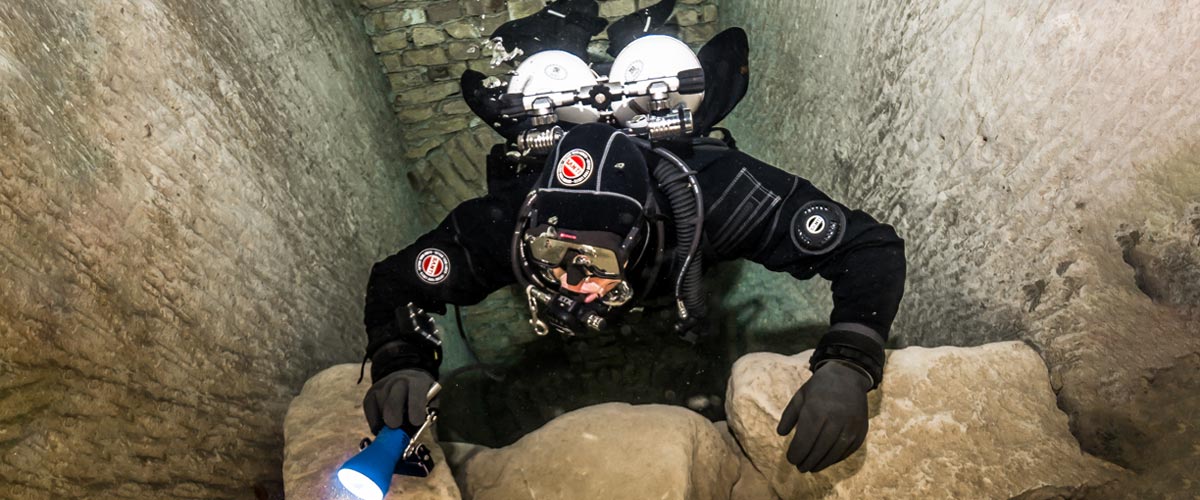
Article by José Pablo Mir
Pictures by Cezary Abramowski
The world of technical diving is exciting. It opens the door to new sites, depths, and bottom times. More importantly, it opens our minds to a new way of planning, facing, and experiencing dives, even those not purely technical.
Becoming a technical diver is a process, and like in other aspects of life, we should find the proper entry point that suits us best based on our knowledge and experience. The Introduction to Technical Diving course from TDI -the world’s largest and most recognized technical diving teaching organization- is the best option for divers who have yet to gain experience in the fundamental aspects of this new practice. The course’s content and its embrace of new techniques and technologies make it possible to acquire a solid foundation to learn and gain experience in this practice properly.
Becoming a technical diver is not something that happens overnight, whether deciding to become one or receiving a certification card stating we are now technical divers. It is a slow process extending farther away than any introductory course. It requires effort and dedication. But it will bring us satisfaction from day one -or two.
It is a matter of mentality
First, we must understand and accept that technical diving, involving greater depths, longer bottom times, exotic gases, virtual or real ceilings, and more, comes with higher levels of risk than the sport diving we have been practicing until now.
Although this discussion usually starts with a warning about risks, as I’ve done in the previous sentence, our practice is not a game of chance.
Technical diving is a rational activity that requires maturity and good judgment, and we will put everything into ensuring that each dive is a successful one -meaning we return from it safe and sound. With this understanding, we will strive to establish a mental attitude more aligned with our practice and its realities.
This new “technical diver” mindset we will develop will lead us to be more cautious in our executions, more analytical in our plans, more rational in our strategies, and more detailed in our procedures.
Experience will keep teaching us to know ourselves better, to keep our anxiety and other emotions under control, and to manage our impulses. Over time, our senses will sharpen, and we will be more attentive to the particulars of the situation we find ourselves in.
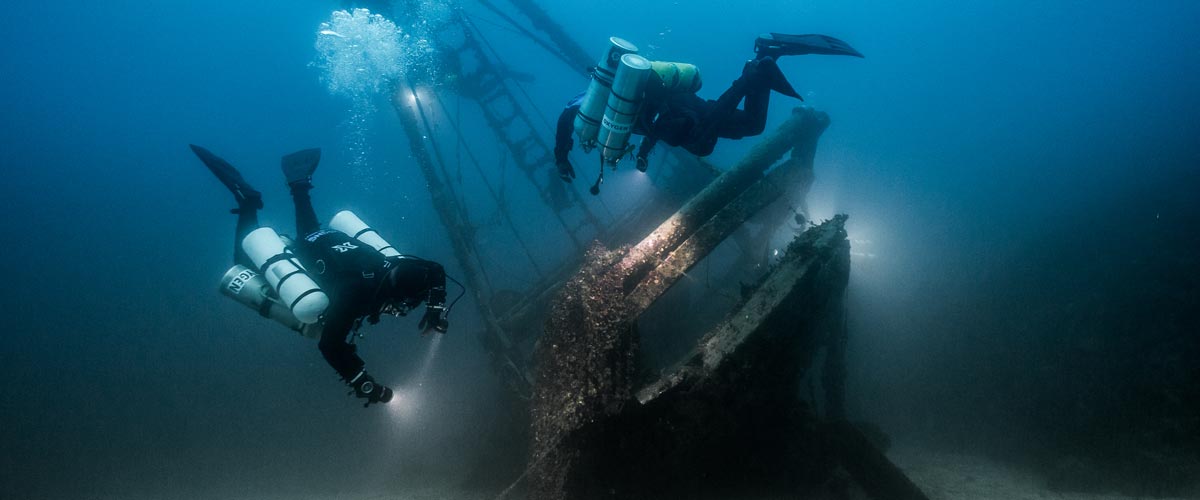
Strategies and procedures
Our strategies, those broad guiding lines tracing the path to follow, from how to approach planning to where, with what, and how we are willing to get there, will be more specific and more practical. Not because they magically become so, but because we will consciously and deliberately frame them that way.
We will establish clear, concise, and realistic procedures. Not only for the undesirable situations that may present themselves but also for those that are part of our dive objectives.
Even though, as technical divers, we often use equipment different from what we were previously accustomed to, it is essential to note that the gear does not make the diver. In a way, we could consider such equipment as the necessary tools to implement what our goal seeks to achieve, according to our strategies and procedures.
Technique plays an important role
We must put our greatest effort into learning and perfecting the different techniques we will be acquiring. Buoyancy, trim, propulsion, cylinder handling, deploying DSMBs and lift bags, valve drills, and more are essential skills we must begin to master to progress in our art. What we cannot do, when we need to do it, can harm us.
Our techniques must be effective and achieve the purpose for which they were devised. But they must also be efficient and require the least resources possible, including the time they take and the effort they demand. Effectiveness and efficiency will prevail over beauty and other considerations that may come to mind, although none of them should be mutually exclusive. A technique executed efficiently and effectively tends to have an inherent beauty.
Refining techniques is a lifelong mission. Some of them will be easy to master from the go; others, on the other hand, will be our life mission and will require many repetitions just to resemble the idea we have in mind of how they should be executed.
We must consider the environment
Our learning, the needs and musts of the practice we engage in, the experience we gradually gain, our strategies and procedures, and even our equipment and tools change with the environment.
Diving in the ocean, everything about us must be suitable for ocean dives. Conditions there rarely emulate those found in a pool, lake, or river. Variable winds and currents, greater depths, visibility conditions, other divers with uncertain skills around us, marine life, maritime traffic, distance from the coast, and many other factors add complexity and uncertainty.
It is never necessary to master the pool on the first day, but planning and aspiring to gradually cope with the ocean’s conditions is essential.
The cost of good training
We are aware that our resources are often scarce in relation to the possibilities of use we could give them if they were not. To a greater or lesser extent, we are part of the economic reality in which we are embedded.
Fortunately, the cost of good technical diver training is not an entry barrier. Comparing training and equipment costs, we see that the former are generally lower. Yes, lower cost for personalized service, essential to our future
performance and safety, than for a series of mass-produced products that are mere, albeit necessary, tools for an end.
The value of good training
The value of the training we received encompasses a range of characteristics, from emotional and methodological to technical and technological. TDI and its Introduction to Technical Diving course offer a deep and modern approach, with a teaching strategy that aims to create thinking divers, not merely obedient ones.
As technical divers, our knowledge is our primary tool. In this type of activity, what we don’t know can harm us.
Is this course optional?
Unfortunately, the fact that this Introduction to Technical Diving course is not a prerequisite for any subsequent training is an invitation to consider it optional. And we all know what usually happens to “optional” under budget constraints.
However, this course should be seen as optional only by those divers who are somehow familiar with the use of technical equipment, who have a mindset more in line with the requirements of this type of diving, who plan and execute the dives the proper “technical” way, who know their gas consumption rate, who are not intimidated by non-decompression tables, who feel comfortable using their dive computers, and know the techniques and have at least an acceptable level of buoyancy, positioning, and propulsion. Those can go straight to a more advanced training course, such as TDI’s Advanced Nitrox.
We must ask ourselves whether or not we are in that group.
Remember our goal: to have fun
Recreational diving is our passion. Jumping into the water carrying heavy equipment and having properly dotted our I’s and crossed our T’s have only one ultimate goal: fun. This is the activity we have chosen as a hobby. We must enjoy it; it must give us pleasure and make us vibrate.
Having a good time is not optional!
Blogs
Four opportunities to go pro in 2024 with Dive Friends Bonaire
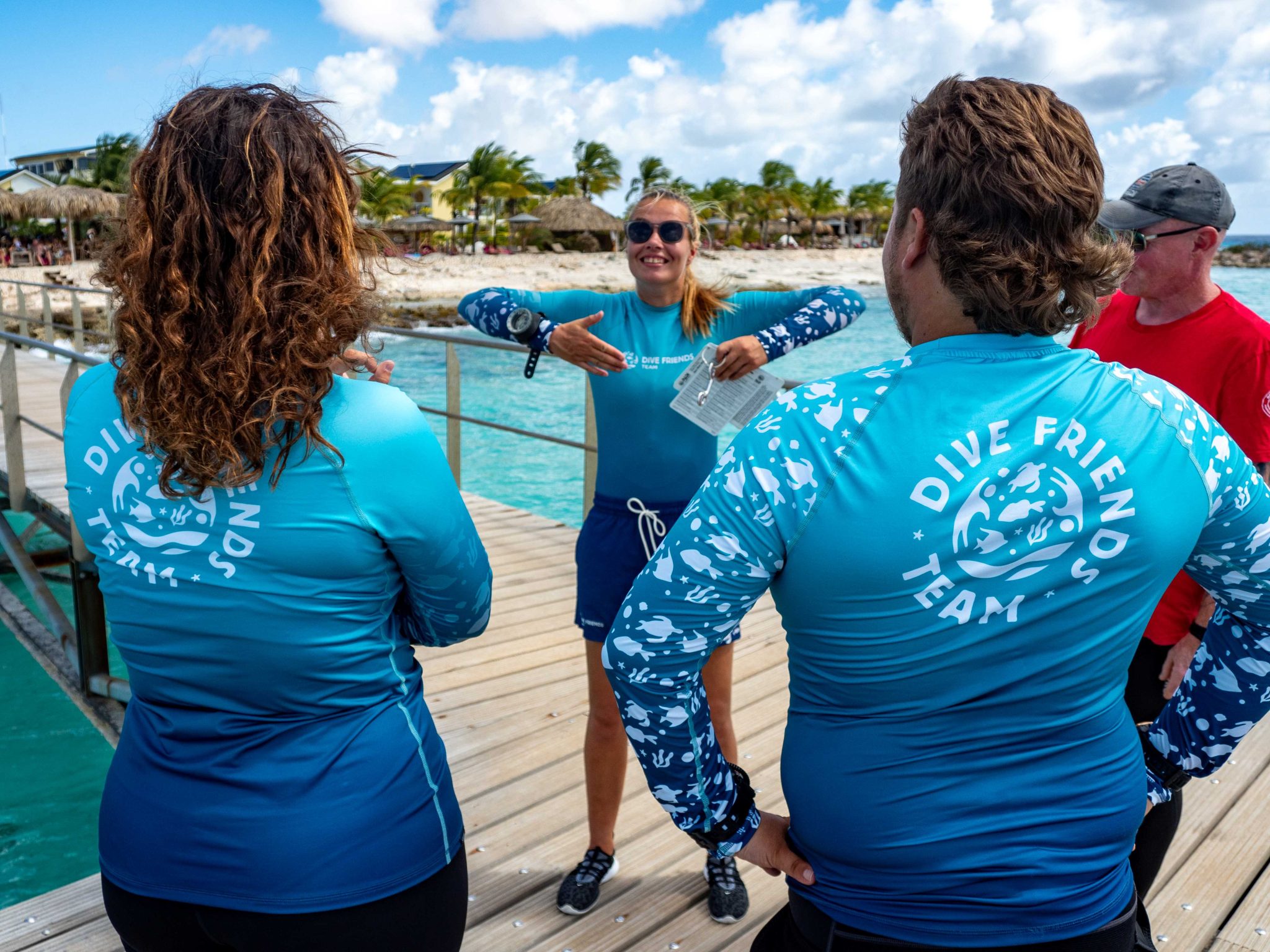
Dive Friends teaches the Instructor Development Course (IDC) several times a year to students who are eager to share their passion for diving with the world.
Dive Friends is known for the personal approach throughout the course. Their in-house course director will lead the students through every essential step, mentoring them to achieve their fullest potential as a dive instructor.
Applications for the following IDC start dates are now open:
- 12 April
- 5 July,
- 20 September
- 29 November
Partnership with Casita Palma
If the student opts for the IDC-Deluxe or IDC-Supreme package, their accommodation will be arranged for them at Casita Palma. This small and quiet resort is within walking distance from Dive Friends Bonaire’s main dive shop location and has everything you need to relax after an intense day of IDC training. Breakfast is included, so the student will always be fuelled and ready for their day.
Contact Dive Friends Bonaire’s Course Director Eddy for more information: coursedirector@divefriendsbonaire.com.
-

 News3 months ago
News3 months agoHone your underwater photography skills with Alphamarine Photography at Red Sea Diving Safari in March
-

 News2 months ago
News2 months agoCapturing Critters in Lembeh Underwater Photography Workshop 2024: Event Roundup
-

 Marine Life & Conservation Blogs2 months ago
Marine Life & Conservation Blogs2 months agoCreature Feature: Swell Sharks
-

 Blogs1 month ago
Blogs1 month agoMurex Resorts: Passport to Paradise!
-

 Gear News3 months ago
Gear News3 months agoBare X-Mission Drysuit: Ideal for Both Technical and Recreational Divers
-

 Blogs2 months ago
Blogs2 months agoDiver Discovering Whale Skeletons Beneath Ice Judged World’s Best Underwater Photograph
-

 Gear Reviews2 months ago
Gear Reviews2 months agoGear Review: Oceanic+ Dive Housing for iPhone
-

 Blogs3 months ago
Blogs3 months agoThe Thrilling Encounter with Tiger Sharks at Beqa Lagoon’s ‘The Colosseum’ with Coral Coast Divers


